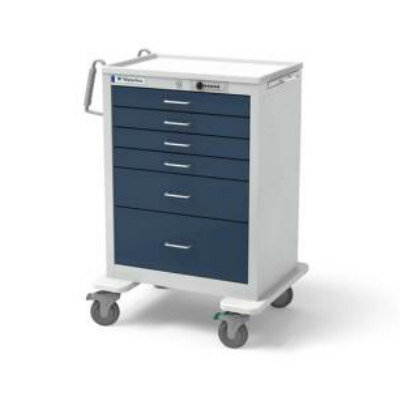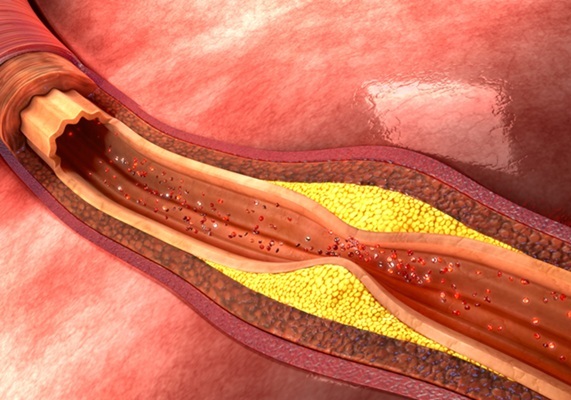Fujitsu to Detect and Analyze New COVID-19 Drugs by Leveraging World’s Fastest Supercomputer
|
By HospiMedica International staff writers Posted on 24 Jun 2021 |
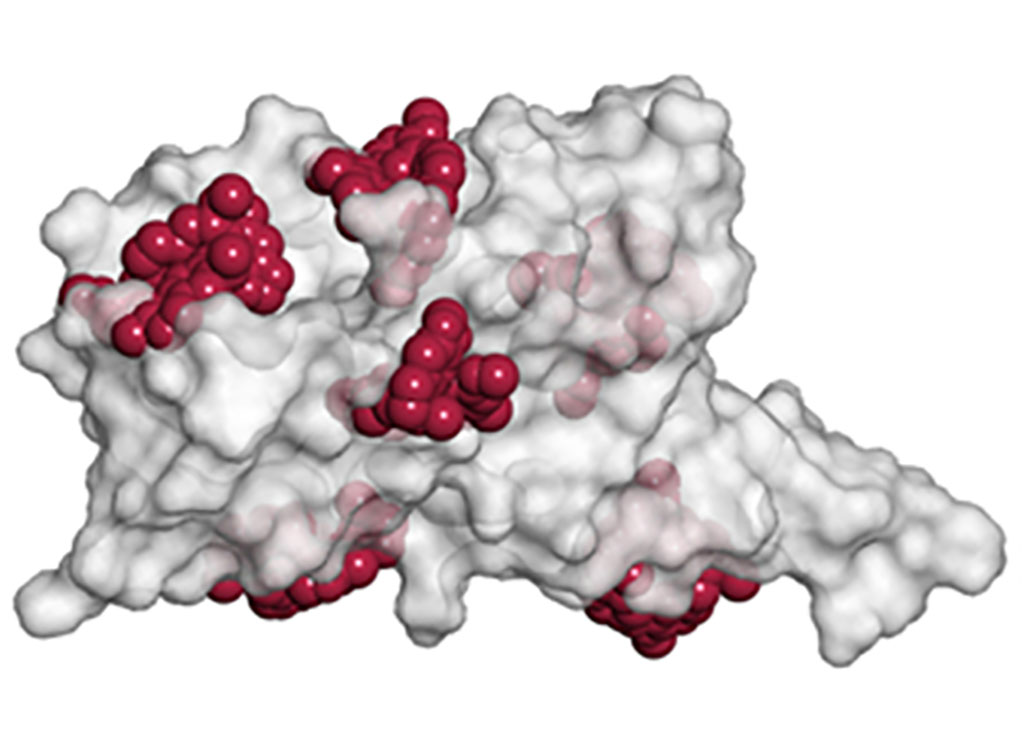
Illustration
Fujitsu Japan Limited (Tokyo, Japan), along with the Research Center for Advanced Science and Technology (RCAST) at the University of Tokyo (Tokyo, Japan), has initiated a new research project utilizing the world's fastest supercomputer for identifying new COVID-19 therapies.
The research will leverage Fugaku, the world's fastest supercomputer jointly developed by RIKEN and Fujitsu, to identify small molecule inhibitory compounds that can be used as potential drugs in treatments for COVID-19, as well as clarifying the molecular mechanism by which COVID-19 infections are inhibited, leading to the eventual development of small molecule therapeutic drugs. Since 2011, Fujitsu has been engaged in joint research with RCAST on IT drug discovery technologies to create candidate small molecule compounds for anticancer drugs and other therapies. While a number of highly effective vaccines have been successfully developed in response to the spread of the COVID-19 pandemic, the development of effective therapeutic drugs remains an important priority. Based on the fruits of their joint research to date in the field of IT drug discovery technology, Fujitsu and RCAST have decided to embark on a new intensive research project to identify inhibitory compounds that will lead to the development of new coronavirus drugs, leveraging the unparalleled computing power of Fugaku to contribute to this goal.
Since 2011, Fujitsu and RCAST have been conducting joint research on small molecule drugs that are highly likely to be taken orally, are chemically synthesizable, and have low production costs compared to drugs in forms of peptide drugs, antibody drugs, nucleic acid drugs, and cell drugs. With the goal of identifying inhibitory compounds that lead to develop new coronavirus drugs that are effective in small doses and reduce the risk of side effects, molecular simulation technology that is the result of the joint research will be utilized. As it is vital to create a molecular structure that can bind strongly to the viral protein and control its activity, molecular simulation technology and Fugaku will be widely used for tasks including the creation of three-dimensional structural models, clarifying the molecular mechanisms of infection inhibition, and predicting the properties of mutant strains. Going forward, Fujitsu will continue harnessing the power of supercomputers and molecular simulation technologies as it strives to quickly deliver on the promise of potential therapies for COVID-19.
Related Links:
Fujitsu Japan Limited
University of Tokyo
The research will leverage Fugaku, the world's fastest supercomputer jointly developed by RIKEN and Fujitsu, to identify small molecule inhibitory compounds that can be used as potential drugs in treatments for COVID-19, as well as clarifying the molecular mechanism by which COVID-19 infections are inhibited, leading to the eventual development of small molecule therapeutic drugs. Since 2011, Fujitsu has been engaged in joint research with RCAST on IT drug discovery technologies to create candidate small molecule compounds for anticancer drugs and other therapies. While a number of highly effective vaccines have been successfully developed in response to the spread of the COVID-19 pandemic, the development of effective therapeutic drugs remains an important priority. Based on the fruits of their joint research to date in the field of IT drug discovery technology, Fujitsu and RCAST have decided to embark on a new intensive research project to identify inhibitory compounds that will lead to the development of new coronavirus drugs, leveraging the unparalleled computing power of Fugaku to contribute to this goal.
Since 2011, Fujitsu and RCAST have been conducting joint research on small molecule drugs that are highly likely to be taken orally, are chemically synthesizable, and have low production costs compared to drugs in forms of peptide drugs, antibody drugs, nucleic acid drugs, and cell drugs. With the goal of identifying inhibitory compounds that lead to develop new coronavirus drugs that are effective in small doses and reduce the risk of side effects, molecular simulation technology that is the result of the joint research will be utilized. As it is vital to create a molecular structure that can bind strongly to the viral protein and control its activity, molecular simulation technology and Fugaku will be widely used for tasks including the creation of three-dimensional structural models, clarifying the molecular mechanisms of infection inhibition, and predicting the properties of mutant strains. Going forward, Fujitsu will continue harnessing the power of supercomputers and molecular simulation technologies as it strives to quickly deliver on the promise of potential therapies for COVID-19.
Related Links:
Fujitsu Japan Limited
University of Tokyo
Latest COVID-19 News
- Low-Cost System Detects SARS-CoV-2 Virus in Hospital Air Using High-Tech Bubbles
- World's First Inhalable COVID-19 Vaccine Approved in China
- COVID-19 Vaccine Patch Fights SARS-CoV-2 Variants Better than Needles
- Blood Viscosity Testing Can Predict Risk of Death in Hospitalized COVID-19 Patients
- ‘Covid Computer’ Uses AI to Detect COVID-19 from Chest CT Scans
- MRI Lung-Imaging Technique Shows Cause of Long-COVID Symptoms
- Chest CT Scans of COVID-19 Patients Could Help Distinguish Between SARS-CoV-2 Variants
- Specialized MRI Detects Lung Abnormalities in Non-Hospitalized Long COVID Patients
- AI Algorithm Identifies Hospitalized Patients at Highest Risk of Dying From COVID-19
- Sweat Sensor Detects Key Biomarkers That Provide Early Warning of COVID-19 and Flu
- Study Assesses Impact of COVID-19 on Ventilation/Perfusion Scintigraphy
- CT Imaging Study Finds Vaccination Reduces Risk of COVID-19 Associated Pulmonary Embolism
- Third Day in Hospital a ‘Tipping Point’ in Severity of COVID-19 Pneumonia
- Longer Interval Between COVID-19 Vaccines Generates Up to Nine Times as Many Antibodies
- AI Model for Monitoring COVID-19 Predicts Mortality Within First 30 Days of Admission
- AI Predicts COVID Prognosis at Near-Expert Level Based Off CT Scans
Channels
Critical Care
view channel
AI Model Analyzes Patient Data to Diagnose Multiple Sclerosis With 90% Accuracy
Multiple sclerosis (MS) is a chronic inflammatory condition affecting the central nervous system. Most patients initially experience the relapsing-remitting form (RRMS), characterized by periods of symptom... Read more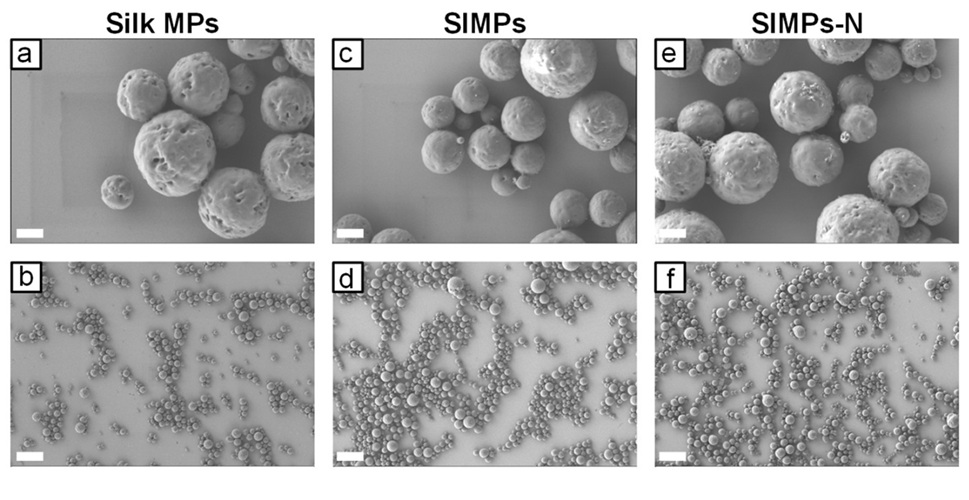
Magnetically Navigable Microparticles Enable Targeted Drug Delivery
Abdominal aortic aneurysms (AAA) can be life-threatening if not treated and result in nearly 10,000 deaths annually. Researchers working to improve treatments for AAA could now make it possible for doctors... Read more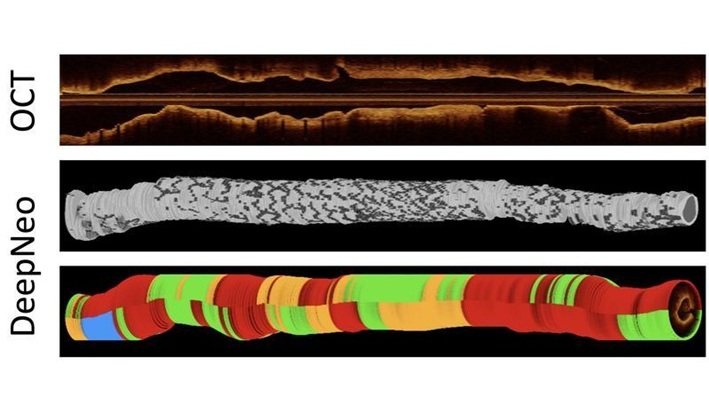
AI-Powered Algorithm Automates Analysis of Coronary Stents After Implantation
Every year, over three million people globally receive stents to open blocked blood vessels caused by heart disease. However, monitoring the healing process after stent implantation remains a significant challenge.... Read moreSurgical Techniques
view channel
DNA Origami Improves Imaging of Dense Pancreatic Tissue for Cancer Detection and Treatment
One of the challenges of fighting pancreatic cancer is finding ways to penetrate the organ’s dense tissue to define the margins between malignant and normal tissue. Now, a new study uses DNA origami structures... Read more
Pioneering Sutureless Coronary Bypass Technology to Eliminate Open-Chest Procedures
In patients with coronary artery disease, certain blood vessels may be narrowed or blocked, requiring a stent or a bypass (also known as diversion) to restore blood flow to the heart. Bypass surgeries... Read more
Intravascular Imaging for Guiding Stent Implantation Ensures Safer Stenting Procedures
Patients diagnosed with coronary artery disease, which is caused by plaque accumulation within the arteries leading to chest pain, shortness of breath, and potential heart attacks, frequently undergo percutaneous... Read more
World's First AI Surgical Guidance Platform Allows Surgeons to Measure Success in Real-Time
Surgeons have always faced challenges in measuring their progress toward surgical goals during procedures. Traditionally, obtaining measurements required stepping out of the sterile environment to perform... Read morePatient Care
view channel
Portable Biosensor Platform to Reduce Hospital-Acquired Infections
Approximately 4 million patients in the European Union acquire healthcare-associated infections (HAIs) or nosocomial infections each year, with around 37,000 deaths directly resulting from these infections,... Read moreFirst-Of-Its-Kind Portable Germicidal Light Technology Disinfects High-Touch Clinical Surfaces in Seconds
Reducing healthcare-acquired infections (HAIs) remains a pressing issue within global healthcare systems. In the United States alone, 1.7 million patients contract HAIs annually, leading to approximately... Read more
Surgical Capacity Optimization Solution Helps Hospitals Boost OR Utilization
An innovative solution has the capability to transform surgical capacity utilization by targeting the root cause of surgical block time inefficiencies. Fujitsu Limited’s (Tokyo, Japan) Surgical Capacity... Read more
Game-Changing Innovation in Surgical Instrument Sterilization Significantly Improves OR Throughput
A groundbreaking innovation enables hospitals to significantly improve instrument processing time and throughput in operating rooms (ORs) and sterile processing departments. Turbett Surgical, Inc.... Read moreHealth IT
view channel
Printable Molecule-Selective Nanoparticles Enable Mass Production of Wearable Biosensors
The future of medicine is likely to focus on the personalization of healthcare—understanding exactly what an individual requires and delivering the appropriate combination of nutrients, metabolites, and... Read more
Smartwatches Could Detect Congestive Heart Failure
Diagnosing congestive heart failure (CHF) typically requires expensive and time-consuming imaging techniques like echocardiography, also known as cardiac ultrasound. Previously, detecting CHF by analyzing... Read moreBusiness
view channel
Expanded Collaboration to Transform OR Technology Through AI and Automation
The expansion of an existing collaboration between three leading companies aims to develop artificial intelligence (AI)-driven solutions for smart operating rooms with sophisticated monitoring and automation.... Read more









